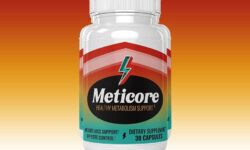What Is The Difference Eczema And Psoriasis, Treatment ⏬👇
What Is The Difference Eczema And Psoriasis
Eczema and psoriasis are two distinct skin conditions that share similarities in their symptoms, yet differ significantly in their underlying causes and treatment approaches. Both conditions manifest as red, itchy rashes on the skin, often causing discomfort and affecting the overall quality of life for those afflicted. Eczema, also known as atopic dermatitis, is commonly associated with allergic reactions and tends to appear in childhood. On the other hand, psoriasis is an autoimmune disorder characterized by the rapid overproduction of skin cells, resulting in the formation of thick, scaly patches. While eczema may flare up in response to triggers like allergens or irritants, psoriasis is often influenced by genetic factors and immune system dysfunction. Understanding these distinctions is crucial for accurate diagnosis and the development of effective treatment strategies for individuals dealing with these dermatological conditions.
Eczema And Psoriasis On Scalp
Eczema and psoriasis on the scalp are dermatological conditions that can cause discomfort and aesthetic concerns for individuals dealing with these issues. Scalp eczema, or seborrheic dermatitis, often presents as red, itchy patches with greasy or flaky scales. It is commonly associated with factors such as stress, hormonal changes, or a yeast overgrowth on the skin. Psoriasis on the scalp, on the other hand, is characterized by thick, silvery scales and red patches caused by the rapid turnover of skin cells. Both conditions may lead to itching, tenderness, and in severe cases, hair loss.
Differentiating between scalp eczema and psoriasis is crucial for effective treatment. While medicated shampoos, topical steroids, and antifungal agents are often recommended for scalp eczema, psoriasis may require treatments such as topical corticosteroids, vitamin D analogs, or phototherapy. Consulting with a dermatologist is essential for accurate diagnosis and the development of a personalized treatment plan tailored to the specific needs of individuals experiencing eczema or psoriasis on the scalp.

Eczema And Psoriasis At The Same Time
Experiencing both eczema and psoriasis simultaneously, although uncommon, can pose unique challenges for individuals dealing with these skin conditions. Both eczema (atopic dermatitis) and psoriasis are chronic inflammatory disorders, but they have distinct causes and manifestations. The coexistence of these conditions, referred to as “overlap syndrome,” can complicate diagnosis and treatment.
In such cases, individuals may exhibit symptoms characteristic of both eczema and psoriasis, including redness, itching, and skin lesions. Managing these dual conditions may require a multidimensional approach. Dermatologists typically tailor treatment plans to address each condition’s specific features, taking into account factors such as the severity of symptoms, triggers, and the patient’s overall health.
Treatment options may include a combination of topical corticosteroids, moisturizers, and immune-modulating medications for eczema, while psoriasis management may involve treatments like topical retinoids, phototherapy, or systemic medications. It’s crucial for individuals with both eczema and psoriasis to work closely with their healthcare providers to develop a comprehensive and coordinated treatment strategy that addresses the complexities of managing both conditions concurrently. Regular monitoring and adjustments to the treatment plan may be necessary to achieve optimal results and improve the overall quality of life for those affected.
Eczema And Psoriasis Treatment
The treatment of eczema and psoriasis involves a combination of medical interventions, lifestyle modifications, and skincare practices. It’s important to note that both conditions are chronic, and while there may not be a cure, effective management can significantly alleviate symptoms. Here’s an overview of treatment approaches for eczema and psoriasis:
**1. Topical Treatments:
- Eczema: Emollients (moisturizers) help keep the skin hydrated. Topical corticosteroids reduce inflammation during flare-ups.
- Psoriasis: Topical corticosteroids, vitamin D analogs, and retinoids are commonly prescribed for mild to moderate cases.
2. Systemic Medications:
- Eczema: In severe cases, oral or injectable medications, such as immunosuppressants or biologics, may be prescribed.
- Psoriasis: Systemic treatments, including oral medications like methotrexate or biologics, may be recommended for more severe cases.
3. Phototherapy:
- Both eczema and psoriasis can respond well to ultraviolet (UV) light therapy. Controlled exposure to UVB light can help manage symptoms, but it should be administered under medical supervision.
4. Lifestyle Modifications:
- Identifying and avoiding triggers is crucial. For eczema, this may include certain allergens or irritants, while psoriasis triggers can vary but may include stress, infections, or injuries to the skin.
- Maintaining a healthy lifestyle, including a balanced diet, regular exercise, and stress management, can positively impact both conditions.
5. Skincare Practices:
- Using mild, fragrance-free soaps and avoiding hot water can help prevent skin irritation.
- Regular moisturizing is essential for both conditions to keep the skin hydrated and reduce the risk of flare-ups.
6. Collaborative Care:
- Working closely with a dermatologist or healthcare provider is crucial for developing an individualized treatment plan.
- Periodic evaluations and adjustments to the treatment plan may be necessary based on the patient’s response.
Individual responses to treatments can vary, and finding the most effective approach often requires a trial-and-error process. It’s essential for individuals with eczema and psoriasis to maintain open communication with their healthcare providers to ensure ongoing care and management.
Can You Have Psoriasis And Eczema
Yes, it is possible to have both psoriasis and eczema (atopic dermatitis) simultaneously. When a person experiences both conditions, it is sometimes referred to as “overlap syndrome” or “concomitant psoriasis and eczema.” While less common, coexisting psoriasis and eczema can present challenges in diagnosis and management because the two conditions have distinct characteristics and triggers.
Psoriasis is an autoimmune disorder characterized by the rapid turnover of skin cells, leading to the formation of thick, scaly patches. On the other hand, eczema is often associated with allergic reactions and is characterized by red, itchy rashes.
Having both conditions may mean that the individual experiences a broader range of symptoms, including inflammation, itching, and skin lesions from both psoriasis and eczema. Managing both conditions may require a multidimensional approach that addresses the specific features of each.
Individuals experiencing symptoms of both psoriasis and eczema should consult with a dermatologist or healthcare provider for an accurate diagnosis and the development of a comprehensive treatment plan. Treatment strategies may involve a combination of topical medications, systemic therapies, lifestyle modifications, and skincare practices tailored to address the complexities of managing both conditions concurrently. Regular follow-ups with healthcare professionals are essential to monitor progress and make any necessary adjustments to the treatment plan.
Do I Have Eczema Or Psoriasis
Both eczema (atopic dermatitis) and psoriasis can share certain symptoms, such as redness, itching, and skin lesions, but they have distinct characteristics. Here are some general features of each condition:
Eczema (Atopic Dermatitis):
- Commonly starts in childhood.
- Red, inflamed skin.
- Itchy patches.
- May ooze or crust over.
- Often associated with allergies or family history of eczema, asthma, or hay fever.
- Triggers may include irritants, allergens, stress, and weather changes.
Psoriasis:
- Can develop at any age.
- Thick, red patches of skin covered with silvery scales.
- Itchy or painful.
- Well-defined borders between affected and unaffected skin.
- Often occurs on elbows, knees, scalp, and lower back.
- May be associated with genetic factors and autoimmune response.
If you are experiencing symptoms that you suspect could be eczema or psoriasis, it’s crucial to seek professional medical advice. A dermatologist can perform a thorough examination, consider your medical history, and may conduct additional tests if needed to provide an accurate diagnosis. Proper diagnosis is essential for developing an effective treatment plan tailored to your specific condition.
Does Eczema Turn Into Psoriasis
Eczema (atopic dermatitis) and psoriasis are two distinct skin conditions with different causes, but they can share some similarities in symptoms, such as redness, itching, and skin inflammation. It’s important to note that eczema does not typically transform into psoriasis. While they may coexist or occur in the same individual, one doesn’t evolve into the other.
Both conditions have genetic and immune system components, but they are triggered by different factors. Eczema is often associated with allergies and tends to start in childhood, while psoriasis is an autoimmune disorder that can develop at any age.
However, misdiagnosis can occur, as some skin conditions may share similar symptoms. If you suspect you have eczema or psoriasis, it’s essential to consult with a dermatologist for a proper diagnosis. A healthcare professional can evaluate your symptoms, medical history, and possibly perform additional tests to determine the specific skin condition and provide appropriate treatment options tailored to your needs.
Eczema And Psoriasis Natural Treatment
While there is no definitive cure for eczema and psoriasis, some individuals find relief from symptoms through natural treatments. It’s important to note that these approaches may vary in effectiveness from person to person, and it’s crucial to consult with a healthcare professional before starting any new treatment regimen. Here are some natural treatment options that some individuals find helpful:
- Moisturizing:
- Keeping the skin well-hydrated is essential for both eczema and psoriasis. Use fragrance-free moisturizers to prevent dryness and reduce itching.
- Oatmeal Baths:
- Adding colloidal oatmeal to a warm bath can help soothe itchy skin. Oatmeal has anti-inflammatory properties that may provide relief for both eczema and psoriasis.
- Coconut Oil:
- Applying virgin coconut oil to affected areas may help moisturize the skin and reduce inflammation. Some people find it beneficial for eczema and psoriasis.
- Sunlight Exposure:
- Controlled exposure to sunlight can be beneficial for both conditions. Sunlight provides natural UVB rays, which can help improve symptoms. However, it’s essential to discuss sun exposure with a healthcare provider to avoid overexposure.
- Aloe Vera:
- Aloe vera has anti-inflammatory and soothing properties. Applying pure aloe vera gel to affected areas may help alleviate symptoms.
- Turmeric:
- Turmeric contains curcumin, known for its anti-inflammatory properties. Adding turmeric to your diet or applying a turmeric paste to the affected skin might provide relief.
- Probiotics:
- Probiotics may help regulate the immune system and gut health, potentially impacting skin conditions. Consult with a healthcare professional before taking probiotic supplements.
- Dead Sea Salt Baths:
- Bathing in water with Dead Sea salt may help soothe psoriasis symptoms. The minerals in Dead Sea salt can have a calming effect on the skin.
- Fish Oil Supplements:
- Omega-3 fatty acids found in fish oil may have anti-inflammatory effects. Some people with eczema or psoriasis find relief by incorporating fish oil supplements into their diet.
- Stress Management:
- Stress can exacerbate symptoms of both conditions. Practices such as meditation, yoga, and deep breathing exercises may help manage stress levels.
It’s crucial to approach natural treatments with caution and consult with a healthcare professional to ensure they are safe and suitable for your specific condition. Natural treatments may complement conventional medical approaches, but they should not replace professional medical advice and prescribed treatments.
Eczema And Psoriasis Spray
There are various over-the-counter and prescription sprays available for individuals dealing with eczema and psoriasis. These sprays often contain active ingredients designed to alleviate symptoms such as itching, redness, and inflammation. Keep in mind that the effectiveness of a particular spray can vary from person to person, and it’s essential to consult with a healthcare professional before using any new product. Here are some common types of sprays used for eczema and psoriasis:
- Corticosteroid Sprays:
- Prescription-strength corticosteroid sprays can help reduce inflammation and itching associated with eczema and psoriasis. These should be used under the guidance of a healthcare professional, as prolonged use of potent corticosteroids can have side effects.
- Topical Calcineurin Inhibitor Sprays:
- Tacrolimus and pimecrolimus are topical calcineurin inhibitors that may be prescribed for eczema. They help to modulate the immune response and reduce inflammation. These are often considered for sensitive areas like the face and neck.
- Coal Tar Sprays:
- Coal tar has been used for many years to treat psoriasis symptoms. It helps slow down the rapid growth of skin cells, reduce inflammation, and alleviate itching. Coal tar sprays are available over the counter and in prescription formulations.
- Natural or Herbal Sprays:
- Some individuals opt for natural or herbal sprays containing ingredients like aloe vera, chamomile, or calendula. While these may provide relief for some people, it’s essential to ensure that the ingredients are safe for your skin and won’t cause irritation.
- Salicylic Acid Sprays:
- Salicylic acid is commonly used to help remove scales caused by psoriasis. It promotes shedding of the outer layer of skin and can be found in various formulations, including sprays.
Before using any spray for eczema or psoriasis, it’s crucial to:
- Consult with a healthcare professional to determine the most suitable treatment for your specific condition.
- Follow the instructions provided with the product carefully.
- Be aware of potential side effects and contact your healthcare provider if you experience any adverse reactions.
- Use the spray as part of a comprehensive skincare routine that may include moisturizers and other recommended treatments.
Remember that individual responses to treatments can vary, so what works for one person may not work for another. It’s important to find the right balance of treatments under the guidance of a healthcare professional.
Eczema And Psoriasis Soap
Choosing the right soap is crucial for individuals with eczema or psoriasis, as harsh or irritating soaps can exacerbate symptoms. It’s essential to opt for mild, fragrance-free, and hypoallergenic soaps that help keep the skin moisturized and avoid triggering flare-ups. Here are some considerations when selecting a soap for eczema and psoriasis:
- Non-Irritating Ingredients:
- Look for soaps that are free of fragrances, dyes, and other harsh chemicals. These can be irritating to sensitive skin and may worsen symptoms.
- Moisturizing Formulas:
- Choose soaps with moisturizing properties. Ingredients like glycerin, shea butter, or ceramides can help hydrate the skin, which is crucial for both eczema and psoriasis.
- Avoid Harsh Detergents:
- Sulfates and other harsh detergents can strip the skin of its natural oils, leading to dryness and irritation. Opt for soaps that are sulfate-free.
- pH-Balanced Soaps:
- pH-balanced soaps are gentler on the skin’s natural barrier. Look for soaps with a pH level close to that of the skin, typically around 4.7 to 5.75.
- Oatmeal-based Soaps:
- Oatmeal has anti-inflammatory properties and can help soothe itchy, irritated skin. Oatmeal-based soaps are particularly beneficial for individuals with eczema.
- Tea Tree Oil or Neem Oil Soaps:
- Some people find relief from psoriasis symptoms with soaps containing ingredients like tea tree oil or neem oil, known for their anti-inflammatory and antimicrobial properties.
- Consult with a Dermatologist:
- If you have specific concerns or sensitivities, consider consulting with a dermatologist who can recommend a soap tailored to your skin type and condition.
Examples of soap brands that are often recommended for sensitive skin, including eczema and psoriasis, include:
- Cetaphil
- Dove Sensitive Skin
- Aveeno
- Eucerin
- Vanicream
It’s important to note that individual reactions to soaps can vary, and what works for one person may not work for another. Additionally, skincare routines should be part of a comprehensive approach that includes other recommended treatments, such as moisturizers, prescription medications, and lifestyle adjustments. Always consult with a healthcare professional or dermatologist for personalized advice based on your specific condition.
Eczema And Psoriasis Cream
Choosing the right cream for eczema and psoriasis is essential in managing symptoms and promoting skin health. Like with soaps, it’s crucial to opt for creams that are gentle, hydrating, and free from irritants. Here are some considerations when selecting a cream for eczema and psoriasis:
- Fragrance-Free and Hypoallergenic:
- Fragrances can be irritating to sensitive skin, so choose creams that are fragrance-free and hypoallergenic to minimize the risk of irritation.
- Moisturizing Formulas:
- Look for creams with moisturizing ingredients to help hydrate the skin. Ingredients like glycerin, hyaluronic acid, shea butter, and ceramides can be beneficial for both conditions.
- Avoid Harsh Chemicals:
- Creams with harsh chemicals and preservatives may worsen symptoms. Opt for products with minimal ingredients and avoid potential irritants such as parabens and sulfates.
- Topical Corticosteroids:
- For both eczema and psoriasis, healthcare professionals often prescribe creams containing topical corticosteroids to reduce inflammation and itching. These should be used under the guidance of a healthcare provider due to potential side effects with prolonged use.
- Calcineurin Inhibitors:
- Topical calcineurin inhibitors like tacrolimus and pimecrolimus may be prescribed for eczema. These help modulate the immune response and reduce inflammation.
- Coal Tar Creams:
- Coal tar is a common ingredient in creams designed for psoriasis. It helps slow down the rapid growth of skin cells, reduce inflammation, and alleviate itching.
- Natural Ingredients:
- Some individuals find relief from creams containing natural ingredients like aloe vera, chamomile, calendula, or colloidal oatmeal.
- Ointments vs. Creams:
- Ointments are thicker and more hydrating than creams. For very dry or thickened areas of skin, an ointment may be more suitable. However, individuals with eczema may prefer creams for a lighter feel.
Examples of cream brands often recommended for eczema and psoriasis include:
- Eucerin
- CeraVe
- Aveeno
- Aquaphor
- Vanicream
Remember, individual responses to creams can vary, and it may take some trial and error to find the most effective product for your specific condition. Always consult with a healthcare professional or dermatologist for personalized advice and to determine the most appropriate treatment plan for your skin.



